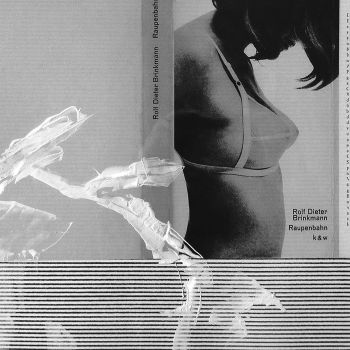
Buy
SIDE A
Lentz 1 MG (Viersen / D)
Grossenhainer EU (Grossenhain/ D)
C.A.Roscher BO (Oberlausitz / D)
Henry Livesey BO (Blackburn / GB)
Lentz 2 MG (Viersen / D)
SIDE B
Saurer MG (Aarbon CH)
Ruti / Łódź / PL, 1892 rec: M.W.#,*
Saurer 400 BO (Aarbon CH & F)
Günne (Irmscher) BO (Möhnesee / D)
Bändchen MG (Jacquard F? unbekannt)
Dornier MG (Lindau / D)
DOWNLOAD CARD ONLY
Transmission / BO
Elitex Jet MG. (CZ)
Robert Hall MG Solo (Bury / GB)
Fred Greenwood Mechanical Works / (Łódź / PL 1889) rec: M.W.#,*
Kleiner C.A.Roscher BO (Oberlausitz / D)
Jean Güsgen BO (Dülken / D)
Grossenhainer EU / lower floor (Grossenhain/ D)
Grossenhainer EU (Grossenhain / D)
Grossenhainer EU lower floor / Variation1 (Grossenhain/ D)
Looms/ group* Łódź / PL / rec: M.W.#,*
MG is : TextilTechnikum Monforts Quartier / Mönchengladbach
EU is : LVR Industriemuseum Euskirchen
BO is : LWL Industriemuseum Bocholt
Recordings : Thomas Brinkmann / 2017 with a Neumann KM 184 stereo set.
# except Monika Widzicka, recordings from 2014 Central Museum of Textiles Łódź, PL
*The soundscape is created by 5 machines in operation:
Two narrow shuttle looms; manufactured by Maschinenfabrik Ruti, Łódź, 1892.
Half-width shuttle loom; manufactured by Fred Greenwood Mechanical Works, Łódź, 1889.
Automatic four-point weft winder; manufactured by Totex Chrastava Frydlant, Czechoslovakia, 1967.
Automatic four-point weft winder; manufactured by Totex Chrastava Frydlant, Czechoslovakia, 1972.
Editions Mego is proud to present the latest addition to the compelling discography of Thomas Brinkmann. Throughout his career Brinkmann has focussed on the human operating amongst industry alongside rhythms that manifest as a result of technological advancement. With this new release Brinkmann makes a u-turn, looking back to the early industrial age. Comprised of recordings of various looms, Raupenbahn investigates the sonic properties and consequences of the first automatic loom as constructed by Jacques de Vaucanson in 1745. Thomas Brinkmann once again adheres to his tendency for clarity and simplicity whilst further investigating not only the sound and rhythms of the machines (looms) but also what role they serve in society and what consequences they have on the environment. Raupenbahn presents 21 tracks in total, 11 feature on the vinyl, the remaining 10 as digital bonus tracks. The majority of recordings were undertaken by Brinkmann in 2017 with a Neumann KM 184 stereo set. Additional recordings were sourced with permission from Monika W. recs. from 2014 Central Museum of Textiles Łódź, Poland. Each piece presents a diversity of material which borders on the breathtaking and beautiful in richness and complexity. The various looms unravel rhythms and patterns unexpected from machines of the early industrial age.
The loom holds a significant role in shaping our world being the catalyst for Charles Babbage’s Analytical Engine which, alongside the subsequent work of Byron’s daughter Ada Lovelace, paved the way for modern computing. There is a linage of the loom that fits succinctly in Brinkmann’s overall argument. Here we encounter a parallel between machine driven economies and the music that rose from such places, consider the Sheffield steel industries, the Manchester weaving industry or the Rhineland / Düsseldorf loom and machine industry. Is it a coincidence that the practice of such machines in the environment gave rise to today’s predilection for electronic dance music, in pop, soundtracks, etc
Raupenbahn features no treatment or processing and explicitly displays varying tempo and timbres which ascertain a wide range of acoustic structures. The artwork features Ingrid Wiener, Rosemarie Trockel and Alexandra Bircken, three different generations who would with ideas of fabric weaving, loming and the like. This exceptional release works on a number of levels alongside it’s striking sonic palette.
